Best Summer Foods to Keep Your Body Cool
By Dr. Malavika Athavale +2 more

Get,

to manage your symptom
Get your,


4 Cr+ families
benefitted

OTP sent to 9988776655



You’ve successfully subscribed to receive
doctor-approved tips on
Whatsapp

Get ready to feel your best.

Hi There,
Download the PharmEasy App now!!


Register to Avail the Offer
Send OTPBy continuing, you agree with our Privacy Policy and Terms and Conditions

Hi There,
Sign up on PharmEasy now!!
Trusted by 4 crore+ families

OTP sent to 9988776655



You have unlocked 25% off on medicines




Code: NU25
By Dr. Malavika Athavale +2 more
Table of Contents
As the mercury levels start rising and drinking gazillion litres of water is not making a difference, a good way to keep your body cool is by consuming the right diet. This can help reduce internal heat and make you feel more comfortable with the soaring temperatures. While cold drinks and frozen desserts might seem appealing options, they are not. They are usually full or sugar and can instead, affect you adversely. So, knowing what to eat in summers will not just help you beat the heat but also keep you healthy. Here is our list of foods that will cool you down this summer:
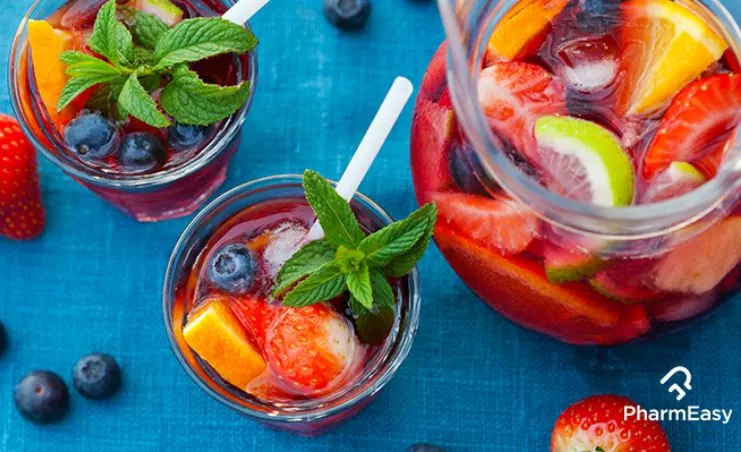
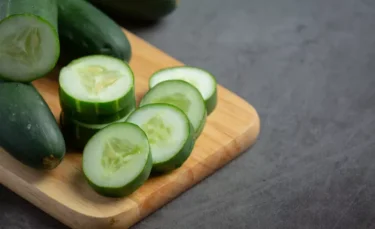
‘Cool as a cucumber’- heard that one, right? Cucumbers instantly hydrate the body and bring down the body heat. You can snack on them as a salad or with your favourite dip or mix them into a juice with ginger and some lemon. Due to their high water content, they aid in providing hydration by replenishing lost fluids and refresh the body1.
In my opinion, cucumber juice can work wonders for your skin. It’s not just refreshing to drink, but it might also have nourishing properties when applied topically. Cucumber juice may have a soothing effect on the skin, helping to calm down irritation and reduce swelling. And if you’ve spent too much time in the sun, cucumber may even help ease the pain of sunburn4.
Dr. Siddharth Gupta, B.A.M.S, M.D (Ayu)
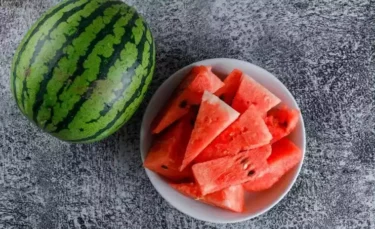
Watermelons sell like hot cakes in the summer. Juicy and full of nutrients that the body needs, the melons make for great summer companions. Not only do they hydrate but boost the body with power-packed nutrients like Vitamin A, Vitamin C, magnesium, potassium and fiber2.
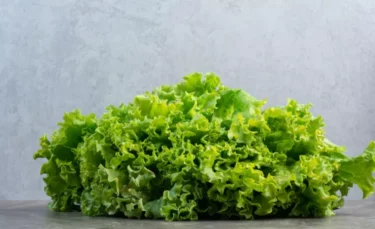
Green leafy vegetables are high in nutrient value, calcium and provide a good cooling effect on the body. Spinach, lettuce, Amaranth, Chinese cabbage and kale are your summer talismans or the safest go-to vegetables. They can be had in smoothies, salads or as a side dish in a meal.
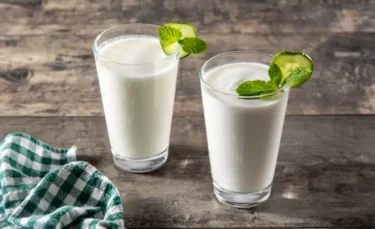
The Indian drink of the summer is buttermilk and the wisdom of the ages shines through. Not only does it keep you hydrated but it also is beneficial for digestion3. Have it with roasted cumin seeds, fresh coriander and some ginger to add zing to your day.
From experience, let me tell you about the magic of buttermilk! It’s like a magical potion that can work wonders for slowing down the ageing process. By nourishing our bodies with its rich nutrients, buttermilk may keep our arteries flexible and might also help combat age-related symptoms such as memory decline, vision problems, wrinkles, and greying hair. Cheers to a youthful and vibrant life with the goodness of buttermilk13!
Dr. Rajeev Singh, BAMS
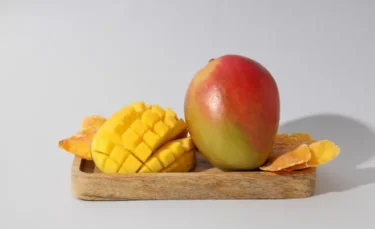
The king of fruits is your best alternative to reducing body heat. There are several ways of incorporating it into your diet. Have it raw, as aam Panna- that quintessential summer drink, as chutney or curry. Mangoes are great for digestion, and can help deal with heat strokes.
From what I’ve seen, mango is much more than just a delicious fruit. It contains bioactive components that may have anticancer activity in various types of tumour cells10.
Dr. Smita Barode, B.A.M.S, M.S.
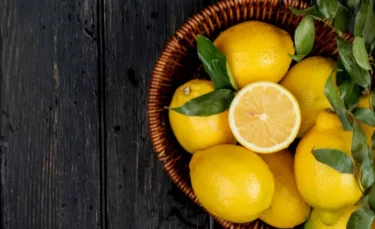
The easiest way to add flavour to your glass of water is to have it with lemon5. They not just hydrate your body but also add a healthy dose of Vitamin C to your diet, boosting your immune system and helping improve your skin health too! So, add a dash of lemon to your juices and salads or just drink it up as lemonade made with plain water and soak in its benefits.
From my perspective, I’ve learned that lemons are more than just a tangy fruit. They may hold incredible benefits for our eyes. The antioxidant properties of lemons might help protect your eyes from ageing and macular degeneration, which is fantastic news for maintaining healthy vision12.
Dr. Anuja Bodhare, B.A.M.S, M.D (Ayu)
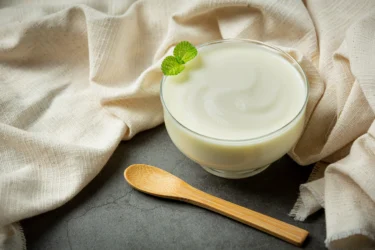
Packed with calcium, curd should be your go-to option for a healthy summer alternative to cold fizzy drinks. Rich with Vitamin B and gut-friendly bacteria, curd helps with digestion and soothes the body from within. Add flavour to it by mixing it with mangoes, strawberries and other fruits. It can also be had as Shrikhand.
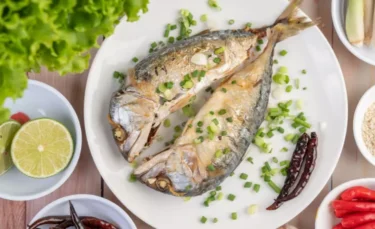
To boost the protein content in your diet without depending on meats, turn to fish. Rich in good fatty acids, fish makes for a tasty alternative, especially in summer. Since it generates less heat on consumption, you won’t feel lethargic and uncomfortably full, a feeling that usually we associate with after having chicken and meat dishes.
Also Read: Incredible Health Benefits Of Muskmelon
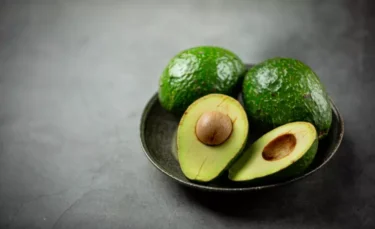
Avocado is a superfood in the true sense. The fruit is laden with a high amount of mono-saturated fatty acids which can help manage your cholesterol levels and support heart health while detoxifying the blood6. They are also easily digested, so your body will not need to create more heat to digest them. But if you have deranged lipid profile then do check with your healthcare practitioner to know the correct quantity for consumption.
I often recommend incorporating fruits and vegetables into your skincare routine to promote healthy skin. Avocado, in particular, has shown great potential in improving skin health. Its rich content of lutein and zeaxanthin, which are easily absorbed by the body, may help shield your skin from the harmful effects of UV rays11.
Dr. Ashok Pal, B.A.M.S
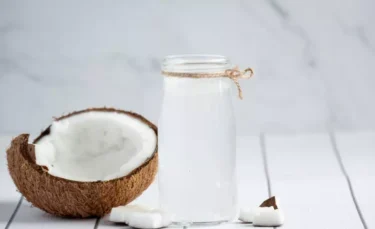
Coconut water is filled with electrolytes which help to keep you hydrated and cool. Rich in essential electrolytes, the power drink helps beat the heat during summer while keeping one hydrated and energetic throughout the day7. It can help keep you hydrated and boost your digestive capacity.
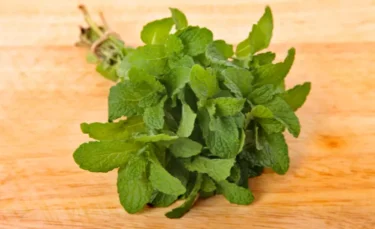
Mint is a herb that has cooling properties. One of the easiest herbs to find fresh in the market, both peppermint and spearmint are the best for consumption during summers. Mint helps in digestion without raising body heat. It also relieves nausea and headaches and eases depression and fatigue8. Making tea with mint leaves can help induce sweating to reduce body temperature. Mint combined with lime too makes a very refreshing drink for summer.
Also, you can add crushed mint leaves to water and have throughout the day. But make sure you allow the mint leaves to soak in the water for an hour before drinking it.
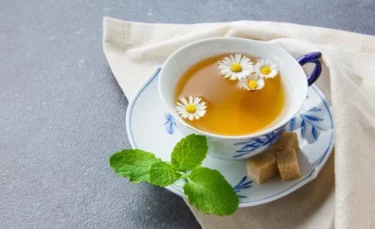
Chamomile tea is known for its antioxidant, soothing and anti-inflammatory properties. This herb can cool the body, ease insomnia, calm anxiety and soothe the digestive system9. It can be great for the skin and scalp as well, as it helps soothe inflammation, rashes, insect bites and even cuts and scrapes. It can help relax the muscles contributing to a soothing and cooling feel.
Remember, though most of these foods have been believed to be beneficial for cooling the body, further large-scale human trials can corroborate these findings.
Also Read: 13 Health Benefits of Watermelon and Recipes
Incorporating these 12 hydrating and nutrient-dense foods into your summer diet can help in keeping your body cool, maintaining electrolyte balance, and overall hydration. Rich in water content, essential vitamins, and antioxidants, these foods not only help lower core body temperature but also provide other health benefits. By making informed dietary choices, you can enhance your body’s resilience to heat and maintain optimal body function throughout the summer months. However, if you have any medical condition, its best to discuss with a health care professional before incorporating any new food item in your diet.
Also Read: 10 Health Benefits Of Black Coffee
Disclaimer: The information provided here is for educational/awareness purposes only and is not intended to be a substitute for medical treatment by a healthcare professional and should not be relied upon to diagnose or treat any medical condition. The reader should consult a registered medical practitioner to determine the appropriateness of the information and before consuming any medication. PharmEasy does not provide any guarantee or warranty (express or implied) regarding the accuracy, adequacy, completeness, legality, reliability or usefulness of the information; and disclaims any liability arising thereof.
Comments

Leave your comment...
You may also like
Comments